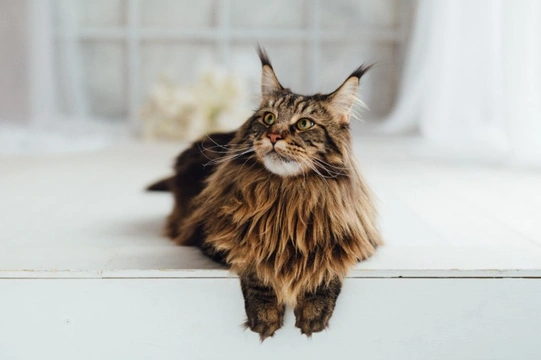
How do cats catch coronavirus?
Coronavirus and in particular, Wuhan coronavirus is getting a lot of attention in the press at the moment, as it’s made a lot of people in China ill and also resulted in fatalities. Wuhan coronavirus is a new strain of the condition, and given that the first confirmed cases of it have been documented in the UK only very recently, is resulting in a reasonable amount of concern across the UK.
One of the main reasons many people are particularly concerned is because the average person doesn’t know very much about coronavirus; it’s not like chicken pox, or mumps, or one of the conditions that most of us know well and in many cases, have experienced at some point ourselves.
Something that many cat owners have recently learned whilst trying to learn more about Wuhan coronavirus is that cats can catch coronavirus too; which might do nothing whatsoever to ease the mind!
For this reason, this article will share some simple and basic information about how cats catch coronavirus, how they pass it on to other cats, and if cat coronavirus can be caught by people.
Read on to learn the essential facts you need to know about how cats catch coronavirus.
What is coronavirus?
First of all, coronavirus is a type of virus, but not just one type; there are lots of different coronaviruses, and they all act differently in terms of the problems and symptoms they cause, and even what type of animals they affect.
For instance, more or less everyone at the moment has heard of Wuhan coronavirus, but this is not the only type of coronavirus, and each different type is unique.
What type of coronavirus do cats get?
Different types of coronavirus are species-specific; whilst some forms of coronavirus can affect more than one specific species of animals, most can’t.
The type of coronavirus that cats can get is called feline coronavirus or FCoV, and this is the only type of coronavirus that can affect domestic cats; they cannot catch, carry, or pass on any other type of coronavirus… including Wuhan coronavirus!
Is cat coronavirus contagious to other cats?
Feline coronavirus or FCoV is contagious between cats, and can be passed on from one cat to another. It is actually quite a common virus and is easily caught, and spreads quickly between cat populations that live together in close quarters or that come into close contact with each other.
Is cat coronavirus contagious to people?
Just as feline coronavirus is the only type of coronavirus that cats can catch, so too is it unique to cats as well. Cat coronavirus cannot be passed on to any other species of animal. For instance, whilst there are forms of coronavirus that both people and dogs respectively can individually catch, they can’t catch (or pass on) coronavirus to a cat.
Cat coronavirus is not contagious to people; your cat cannot give you coronavirus, and you cannot give coronavirus to a cat.
How do cats catch coronavirus?
So then, how is coronavirus spread between cats, and how do cats catch or pass on coronavirus to each other?
There are several different ways a cat might become infected with coronavirus, and it is one of the most common viral conditions to affect cats in the UK; in fact, over 40% of all cats will catch coronavirus at some stage of their life! Most cats won’t actually become ill if they catch it though, and for those that do, their illness may well be mild and short-term, although this is not always the case.
Coronavirus is not airborne, and is most commonly caught and passed from cat to cat orally, when a cat swallows the virus accidentally.
This itself can our through direct contact with other cats, such as touching noses or mutual grooming, but tends to happen by means of contact with either litter trays or soil infected with the virus, as cats carrying it shed the viral load in their faeces. It may also happen through contact with shared food and water bowls.
Generally, cats shake the virus off with no symptoms of problems, but shed the virus and can pass it on whilst infected with it. The virus generally runs its course and clears itself from the healthy cat’s body on its own without incident.
Can you prevent your cat from getting coronavirus?
There is a vaccine for coronavirus in cats, but as the vast majority of cats won’t become ill from having coronavirus, this is not given as standard, nor part of your cat’s routine vaccinations and boosters. However, if your cat is immune-compromised and goes outside or has contact with other cats, your vet might suggest vaccination.
There is no fool proof way to prevent coronavirus infection in other cats, and as it is rarely a problem, tends to be of little concern. That said, keeping your cat’s litter tray clean and hygienic and providing separate litter trays for each cat you have is good practice in general, and can reduce the spread of cat coronavirus too.



